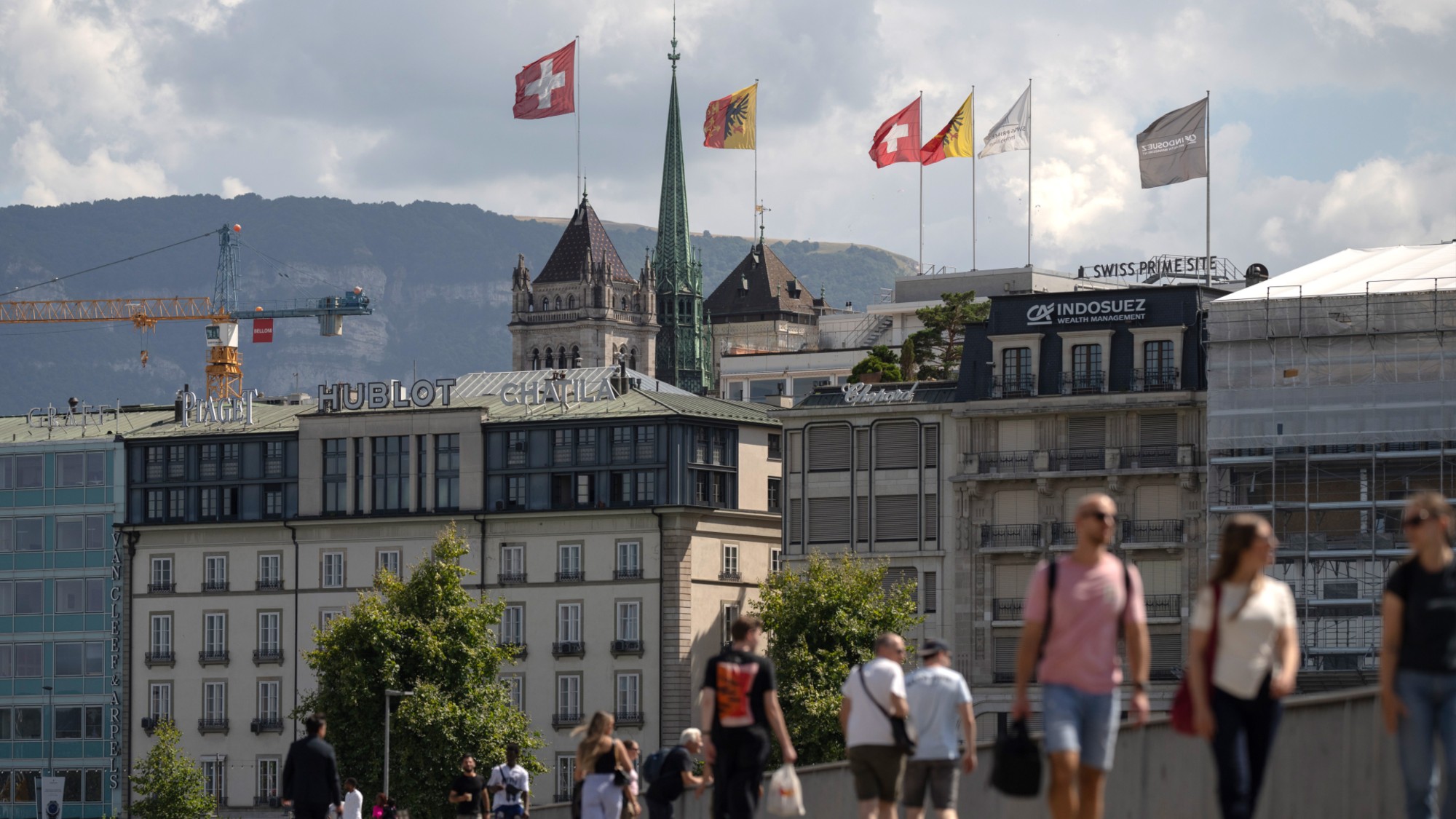Switzerland could experience unique economic problems from Trump's tariffs
The current US tariff rate on Switzerland is among the highest in the world


A free daily email with the biggest news stories of the day – and the best features from TheWeek.com
You are now subscribed
Your newsletter sign-up was successful
President Donald Trump's tariffs are causing economic stress for countries around the world, but Switzerland has become an unlikely target for some of the White House's import taxes. The wealthy Alpine nation has been hit with one of the Trump administration's highest tariff percentages. This has led to people across Switzerland, a country that typically stays out of global conflicts, wondering why the nation is in Trump's crosshairs and what it means for the Swiss economy.
Switzerland has among the world's highest tariffs
The Trump administration has imposed a 39% tariff on Swiss exports, the sixth-highest among any country. The high tax came as a "surprise to the European country" given that a "trade agreement had seemingly been imminent," said CNBC. While Switzerland has remained mostly neutral in recent American affairs, Trump has long railed against the country.
This despite Switzerland being "long prized" for what it "describes as an 'excellent' relationship with America" and becoming famous for its political neutrality and luxury goods, said The New York Times. But Trump has singled out nations like Switzerland that he says "treat Americans 'unfairly' by exporting more goods to the United States than they buy from it."
The Week
Escape your echo chamber. Get the facts behind the news, plus analysis from multiple perspectives.

Sign up for The Week's Free Newsletters
From our morning news briefing to a weekly Good News Newsletter, get the best of The Week delivered directly to your inbox.
From our morning news briefing to a weekly Good News Newsletter, get the best of The Week delivered directly to your inbox.
Switzerland does have a high trade deficit with the U.S. — about $48 billion, according to the U.S. Census Bureau. But rather than this being a case of Switzerland treating the U.S. "unfairly," the "reality may be more straightforward: Trump was keen to make big deals, and Switzerland just isn't that big," said BBC News. Trump wants to use tariffs to eliminate foreign trade deficits, but "balancing the deficit looks impossible. The population of Switzerland is just 9 million, and, bluntly, many of them don't want to buy U.S. products." The "gas guzzling cars are too big for Alpine roads, U.S. cheese and chocolate — well, let's just say they're not really to Swiss taste."
Fear of being 'annihilated'
The tariffs have caused concerns among the Swiss people, especially among business owners who dominate Switzerland's industries. The "worst-case scenario has become a reality," Swissmem, a group representing the Swiss engineering and tech industries, told The New York Times in a statement. If this "exorbitant customs burden is maintained," Switzerland's "export business to the U.S.A. will be effectively annihilated."
There are tariff exemptions for Switzerland's gold and pharmaceutical businesses, two areas in which the U.S. relies most on the country. But other businesses are the "main victims of Trump's economically misguided focus on bilateral trade balances," said The Economist. Half of "Switzerland's overall trade surplus with the world is with America, because its specialties — pharma, gold, luxury items and high-end machinery — fit American demand," so many believe high tariffs will negatively impact the Swiss economy. Switzerland may be able to make up some of its trade with the European Union, but "politically, being slighted by America hurts."
Among the Swiss, the "surprise wasn't that the U.S. took action," said the Financial Times, but rather the amount of the tariff. Some are even blaming Switzerland itself for the situation. Switzerland has a "reputation for delivering on its commitments. But that can be a weakness in a world that rewards drama and ambition," said Hans-Peter Portmann, a Swiss banking executive and member of the country's parliament, to the Financial Times. "That's a problem when you're up against Trump."
Justin Klawans has worked as a staff writer at The Week since 2022. He began his career covering local news before joining Newsweek as a breaking news reporter, where he wrote about politics, national and global affairs, business, crime, sports, film, television and other news. Justin has also freelanced for outlets including Collider and United Press International.
